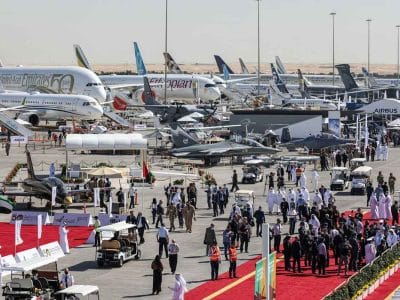In a world of ever-changing opportunities, arises a horizon filled with fruitful prospects, but also one full of new threats and risks.
Today’s board and CEO must position their company to capitalise on the latest disruptions and the bounty presented by emerging blue ocean markets, while at the same time bullet proof their balance sheet against the most daunting existential threats that threaten to scorch local businessmen and women with the searing fires of change.
Take the education sector as an example. This sector has sprouted a litany of new businesses in the virtual education realm. Local champions, like GEMS Education, have emerged on the global stage with new digital platforms allowing them to enter the lucrative markets of the United States and other western countries, plundering what was once hard to reach customer segments.
While the Covid-19 crisis forced GEMS to upgrade its own internal virtual platforms, it provided the chrysalis that gave birth to a new digital business line for the K12 education behemoth.
While the chalice of success in the education industry is overflowing, the new threats that emerge are also grave. For example, local universities in Saudi Arabia and other GCC countries often went unchallenged in their ability to service local student populations. However, in a post Covid world online education has become the norm. With brick-and-motor universities being forced to teach online, virtual education has become en vogue and previously unchallenged facilities have suddenly come under threat from a multitude of external possibilities.
This has been a game changer and opens up the online degree market with a vengeance. In the not-so-distant future local universities will have to vie for students against global leaders such as Harvard, Oxford, Wharton and others.
If local university presidents do not respond with a razor sharp and immediate solution, it could present a serious threat to the sustainability of local education where location and ease of access no longer become competitive differentiators.
In this new world, CEOs must have world class vision and strategic skills, which will allow them to see around corners and position their brands for the win in the future. This requires a ten-year vision or longer. Failure to do so can leave companies deep in the red and reeling in losses.
CEOs today have to have the wisdom to answer questions such as “what capabilities do we need to succeed in 2030?” and “what will our revenue mix look like in ten years from now?”

The final existential threat is that of talent. The emerging digital nomad allows your best executive to pick up and work in New York or Shanghai, while not leaving your office. Talent is more mobile than ever and if professionals are not pampered with the latest perks and fully engaged with a sense of purpose in their work, they can “click-up” and leave, literally while they sit in the “office” next to their CEO.
Executives may start with a short contract to try the freelance market. Dedicating at first a few hours to working for outside companies. Payments for services are made to online accounts and require no business license. Once these executives have the confidence that there is a market for them, they can easily quit the local full-time jobs and start surfing the global economy for lucrative contracts. Sites such as Fiverr, Upwork, Toptal and even LinkedIn, make it easier than ever before for employees to pick up short, part time assignments.
This new digital ecosystem provides the right incubation for the development of risk averse entrepreneurs who can develop an additional revenue stream while still working and then once they are comfortable, resign.
The CEO of the future will require a commanding knowledge of industrial psychology and how to make work environments attractive to the temperamental and sensitive millennials. Archaic human capital policies, such as sick days and vacation days, will disappear as Netflix founders Feed Hastings and Marc Randolph have already done.
Existential threats will always be present, yet this new dynamic digital environment brings the heat of global competition firing through fiber optic lines, jumping across oceans and flying over mountain tops to directly snatch local customers away from what was previously forbidden territory. The sanctuary of geography has been deleted and, vice versa, employees are now able to work for global multi-nationals from the comfort of their own living room, a fact that was a figment of our imagination in the years prior to Covid.
This places new demands on the skills of CEOs, who are tasked with navigating the tumultuous seas of their markets. The ever changing work environment now demands a visionary CEO who is an innovative revenue generator and to those who make the transition will enjoy the spoils of war and to the rest their fate is approaching with haste.
Shane Phillips, CEO of The Phillips Group








